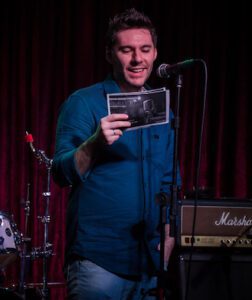One of the biggest mistakes that a person can make in music is to think that ONLY classes will lead the person to become a good musician. I say this in relation to any instrument, song or theory. This goes for classes with us or with any teacher (or coach) in the world.
We are going to restrict ourselves to singing lessons in this post to exemplify well and also because it is our specialty.
After going through many singing teachers of different styles and “techniques” (yes, between quotes, I explain in another post), I came to the conclusion that the best thing that a singing teacher (vocal coach) can offer is to organize your study and practice. practice. In short, how and how much you should study/practice.
In this way, the classes should check what was studied and pass on more content until the next meeting. The interval between classes will sometimes depend more on the student and on pragmatic issues (schedule, class price, etc.)
A weekly class is enough because it is considered that the student will study something between 3 and 5 times that same sequence of exercises and activities on top of the repertoire between one class and another. Of course, the teacher must be aware of the student’s goals and also be understanding when the student communicates that his schedule does not allow for all this dedication.
It is possible to have results without this dedication mentioned above , it is enough for the vocal coach to come up with a plan with the student and also for the student to become aware that his development will be slower.
In any case, it is essential that the student takes a day off (not singing on that day). Assuming a maximum weekly dedication then it would be 1 day of class + 5 days of study + 1 day of rest. In the case of students who already do shows and recordings, it is not recommended to study on the day of the show or recording (just warm up) and the need for 2 days of weekly rest should be considered.
How much time each day of study? Something between 45 minutes (minimum) and 2 hours (maximum). If the student is a beginner, he should stay very close to the minimum number for a few weeks (or even months) and we should leave the maximum number only for those who already have the necessary stamina to sing for that long. In any case, ask your singing teacher for guidance.
Having organized the study time, it remains for us to answer the question of how to study. The answer here seems a bit obvious: just as your teacher indicated during class. That is, you must reproduce exactly the sounds and sensations that your vocal coach indicated.
For this, I think it’s ESSENTIAL to record the exercises and songs worked on in class. The better the recording quality, the better you can study at home later.
The ideal conditions would be to study in a studio, with peace of mind, acoustic insulation and return equipment. We can adapt this and study in a room, with closed doors and windows and a reasonable quality cell phone. Nowadays it is possible to invest in basic equipment (microphone and headphones) spending very little.
If you achieve this ideal condition at least 1 or 2 times a week, you can rest assured that the advantage of singing is that you can study anywhere or do almost anything else simultaneously.
A precious tip that I always pass on is that if you have the exercises and the repertoire on your cell phone or on a USB stick, you can study in the car, in the shower, while cooking, cleaning, washing dishes, washing and drying clothes, etc.
In closing, the main message of this post is that with a plan and proper guidance from your singing teacher, everything else is up to you! It’s in your hands to become the singer you always wanted to be!


